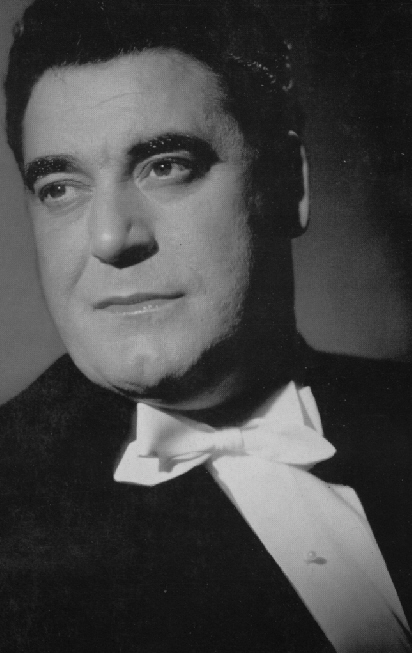Born in Mainz, Traxel received no regular voice training, though he studied composing, music teaching and conducting
(in Darmstadt). Knowledge gained in these enabled him to understand 'the voice' and its possibilities – from this basis at
least, he became a highly regarded singing teacher at the Stuttgart academy during the last years of his life.
As Traxel finished at Darmstadt, WWII broke out and he was called up. Wounded in 1942 he was sent back to Mainz. Scarcely fit,
the opera house asked him to sing Ottavio, which he accepted despite no stage experience.
The war called him again, and taken
prisoner he spent the remainder in USA where he formed an orchestra in the POW camp. He finally returned to Europe in 1946 and
found a job as an interpreter in Nuremberg until the director of its opera house engaged him. There he gained experience in a
wide range of roles, and in 1952 he moved to Stuttgart Opera as a resident artist for the rest of his career.
During that time, he pushed for revivals of little-remembered operas and sang in premieres of works by modern composers
(e.g. Hindemith and Strauss).
Traxel was a likeable character but very self-critical, and his wife Elli became an invaluable support in his quest to develop.
Apart from singing and producing, he was famed as a writer of satires and doggerels, many of which were published
(though sometimes not until the subject was deceased!).
He died in 1975.
His voice was a large high-placed lyric one of remarkable control and range – up to top D with ease, and able to
negotiate the coloratura (though often helped by aspirates!) demanded by Mozart and Weber. The tonal sound was unusual:
bright and slightly nasal, with a solid lower register; perhaps reminiscent of Anders but with more open tone.
Roles included music by Wagner (e.g. Stolzing and Steuermann), as well as Adam, Haydn, Flotow and Mozart. His vocal
acting can seem reticent, particularly his earlier recordings of 1950s – later there is more dynamic breadth.
